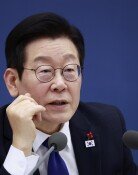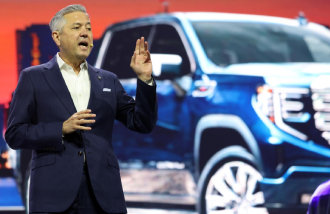‘CVID is political pile of crap,’ says former U.S. senior diplomat
‘CVID is political pile of crap,’ says former U.S. senior diplomat
Posted May. 16, 2018 08:06,
Updated May. 16, 2018 08:06
Former senior officials at the U.S. State Department, who have plentiful experiences in negotiating with North Korea, have cast doubts in unison over the prospect of achieving the “complete denuclearization” of Pyongyang.
Former American negotiators expressed skepticism over the current atmosphere between Pyongyang and Washington during a forum “How to Talk to North Korea” hosted by the Carnegie Endowment for International Peace on Monday (local time).
Robert Gallucci, who negotiated the 1994 nuclear freeze deal with Pyongyang, dismissed the concept of complete, verifiable and irreversible denuclearization (CVID) as “political pile of crap.” Saying that the administration should not deceive the people, Congress and the international community about what it can get from North Korea, Gallucci warned against the administration settling for a “political compromise” that accepts the North lying about dismantling its nuclear weapons program.
“I don’t see anything as irreversible. I think the use of the word, which is supposed to convey a permanence, is unfortunately misleading,” said Gallucci. “As a matter of fact, my most important point on this is that you can never take away from North Korea its latent, recess capability to build nuclear weapons.” He pointed to the fact that it is impossible to get rid of the North’s nuclear scientists and engineers.
Christopher Hill, former Assistant Secretary of State for East Asian and Pacific Affairs and head of the U.S. delegation to the six-party talks, also said that negotiations with North Korea had always failed in the verification stage in the past because the North revealed only part of its facilities for verification. Daniel Russel, who also served as the Assistant Secretary of State for East Asian and Pacific Affairs during the Obama administration, also predicted that the U.S.-North Korea summit would fall short of making the North to sell or trade its nuclear weapons but result in a nuclear freeze at best.
Jeong-Hun Park sunshade@donga.com







